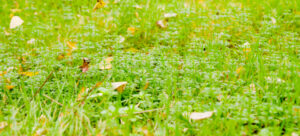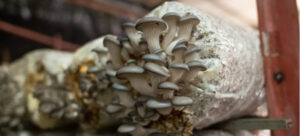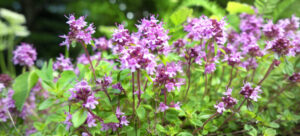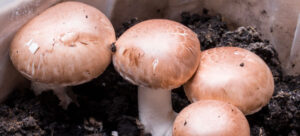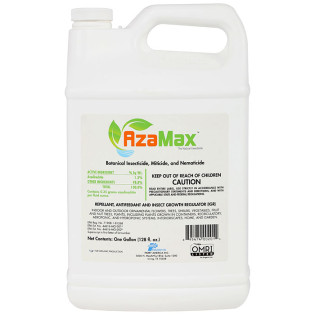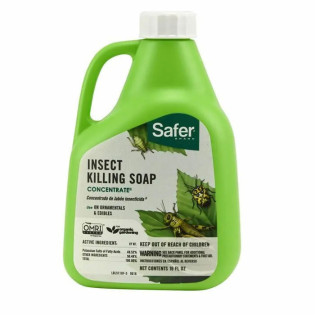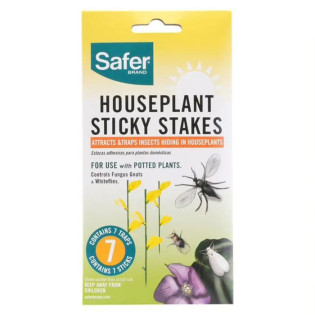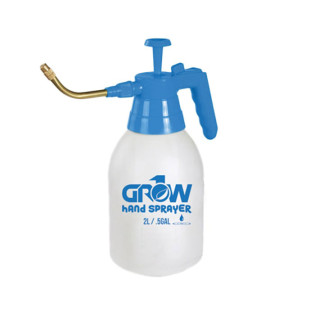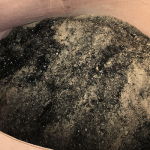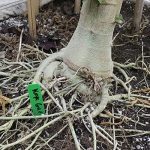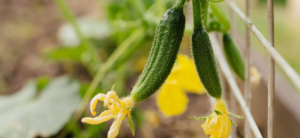
If you’re preparing for your first crop in an organic garden, pest control is going to be tougher than you may be used to because you won’t be able to rely on some of the products and tactics you’re used to in traditional growing.
Gardening is tricky enough - but being more limited in resources when dealing with pests or fungi? This makes things even more difficult.
Although sometimes pesticides & fungicides are the only options, organic gardening is becoming more and more popular as people become more conscious about what they put in their bodies.
If you’re looking for tips on how to control pests organically, you may have heard of classic remedies like diatomaceous earth and neem oil concentrate.
But do these organic veggie garden pest control options really work - and if so, how? Today, we’re going to cover everything you need to know - including what truly defines whether a garden is organic or not.
Then, we’ll teach you some of the most effective organic garden pest prevention and control tips out there. By the end of this article, you’ll feel confident handling any bug or fungus that dares enter your garden!
What Constitutes Organic Garden Pest Control?
When it comes to organic garden pest control, you might be a bit confused about what the term “organic” actually means. The waters have certainly been muddied, so we want to define what is and what is not organic first.
Technically, the word “organic” just means something having to do with living matter. That doesn't tell you a whole lot when it comes to treating pests on your plants!
When In Doubt - Look For The OMRI Crest!

It might be more helpful to think about what products can and cannot be used in organic gardening - and what the phrase OMRI means.
OMRI is an acronym that refers to the Organic Materials Review Institute. When you buy organic produce or meats at the grocery store, it is food that was produced, packaged, and in some cases, processed, in accordance with the USDA’s Certified Organic labeling program.
OMRI reviews all products and materials for their suitability in organic farming and gardening according to this program.
If you're just growing a few vegetables for yourself, you don’t necessarily need to meet these organic standards - unless it’s something that matters to you personally.
However, if you plan on selling any products and wish to have them listed as certified organic, you’ll need to pay attention to not doing any of the following:
- Using conventional chemical-based pesticides
- Using synthetic fertilizers or herbicides
- Treating with radiation
- Growing genetically modified plants
- Using hormones or antibiotics
What Chemicals Are Approved For Organic Garden Pest Control?
There are some chemicals that are approved for use in certified organic gardening.

However, you may still want to stay on top of your pest problems with non-chemical solutions regardless - in that case, this article will walk you through them. Some products that can be used in OMRI-certified gardens include:
- Azomite
- Fish emulsion
- Alfalfa meal
- Humic acids bone mea
- Crab meal
- Dolomite lime
- Calcium
- Neem oil
- Predator urine granules
- Bi-carb
- Azadirachtin...and those to avoid include things like:
- Glyphosate
- Dicamba
- Triclopyr
- Bifenthrin
- Fipronil
- Permethrin
- Trichlorfon
- Acephate
- Deet
- Dursban
- Diazinon
- Boric acid
These are only allowed if they are manufactured according to OMRI standards - so again, look for the OMRI crest on any bottle of nutrients or pest control products if you want to be sure!
How To Control Garden Pests Organically
Now that we know exactly what defines organic garden pest control, we can move onto why you actually came here today - to learn how to control garden pests organically!
We’re going to share some of our favorites, but this list is by no means exhaustive. However, always do your due diligence into the type of plants you’re growing, how you’re growing them, and whatever other factors are at play before trying something new in the garden!
Floating Row Covers
Floating row covers can be used to control all kinds of pests on your plants, including aphids, cabbage worms, tomato hornworms, squash bugs, and more.

They also provide protection from squirrels, deer, birds, and other herbivorous pests. These mechanical controls work simply by covering your plants so that nothing can get inside.
Although you can’t use them while your plants are in bloom (and need to be pollinated), floating row covers can be used at any other time of the year.
They offer an additional benefit in that they can provide protection from intense precipitation or an early frost, too.
Beneficial Nematodes
You may also consider using beneficial nematodes in the garden. These parasitic nematodes do their work by releasing bacteria that kills a host insect in just 24 to 48 hours.

They exist in soil normally in small numbers, but sadly, there just aren’t enough of them to make a difference in most cases.
You can purchase nematodes and release them in your garden to control pests like Japanese beetle larvae, cutworms, root maggots, and other grubs and pests that tend to spend most of their time in the soil.
Pheromone and Sticky Traps
Pheromone traps rely on the natural insecticidal powers of nature to get the job done for you! Here’s how they work.
Insects naturally produce powerful smells, knwon as pheromeones,t hat they use to attrac the opposite sex.
You can purchase pheromone traps that lure male insects and let you know if a particular pest is moving into your area.
You can then utilize other organic gardening pest control solutions to get rid of the pests. Sticky traps work by catching insects that are attracted to sheets of material that’s a certain color.
That material is coated with a sticky substance, so when the insects are drawn to and then land on the traps, they will get stuck.
These are effective against pests like whitelies, leafhoppers, cucumber beetles, and mealybugs. Of course, you need to remember that the traps will have to be replaced and emptied often!
Bacillus Thuringiensis
Bacillus thuringiensis, or BT, is a naturally occurring soil bacteria that can be used to kill all kinds of insects.
Each kind of BT is effective against only one kind of insect or group of insect. Because of this, you do need to be careful about using BT when you’re trying to encourage beneficial pollinators to your plants (for example, the same BT that kills cabbage loopers can also kill caterpillars of beautiful butterfly species).
BT tends to be most effective against pests before they become adults. It can be used for all kinds of insects, including many kinds of caterpillars and beetles.
Other Options For Controlling Garden Pests Organically
There are also many products that you can purchase and use for organic pest control in your garden, such as diatomaceous earth, neem oil, and insecticidal soap. We’ll cover each of these in further detail below.
What Is The Best Organic Garden Pest Control Product?

When it comes to treating and preventing pest problems in the garden, you have several organic garden pest control products you can choose from. Here are some of our favorites.
Diatomaceous Earth
Diatomaceous earth can be used with all kinds of crawling insects, from crickets to fleas, silverfish to ants, millipedes, and more.
Economical and convenient to use, diatomaceous earth (DE) is a product that is made out of the crushed-up fossilized remains of diatoms.
When ingested or walked upon, this powder cuts through the delicate exoskeleton of these pests, causing them to dry out and die.
Although diatomaceous earth will need to be reapplied between watering sessions, it is a highly effective treatment that can be used safely on any kind of plant. Read our complete guide on how to use DE in the garden!
Safer Brand Insect Killing Soap Concentrate
Another option for you to use in your garden is insect killing soap concentrate. Though it might sound a bit strange to use insecticidal soap on your plants, the reality is that using insecticidal soap (which contains potassium salts) on your plants is actually a highly effective way to get rid of pests.
It breaks down in just seven to ten days, so not only is it safe for you to consume your plants after using this - you don’t have to consider any kind of residual impact on the environment, either.
It won’t kill beneficial insects but instead goes after all manner of irritating garden pests, from aphids to grasshoppers, harlequin bugs to spider mites, mealy bugs, leafhoppers, and everything in between.
Neem Oil Concentrate
Neem oil concentrate is a classic organic gardening pest control solution. It’s an essential oil extracted from the seeds and fruits of the neem plant.
It is produced via the cold extraction process and is most effective when used as a preventative and applied during the vegetative stage of your plants, typically every seven to ten days.
It works quickly so that it can get rid of all kinds of pests before they have the opportunity to damage your plants. We have a complete guide on using neem oil in the garden if you want to learn more.
Safer Brand 3-in-1 Garden Spray Concentrate
Although this list of organic gardening pest control solutions is far from exhaustive, the last option on our list is the Safer Brand 3 in 1 Garden Spray Concentrate.
It’s important to note that this product is effective against both a wide variety of garden pests as well as various kinds of fungal diseases, serving as both a fungicide and an insecticide.
It can be used to get rid of aphids, grasshoppers, earwigs, leafhoppers, squash bugs, and other kinds of pests along with disease like rust, leaf spot, and powdery mildew.
A blend of insecticidal soaps and sulfur fungicide, this product has a large coverage area and breaks down to a natural state in just seven to ten days - you don’t have to worry about it harming your plants or your health so you can safely use it on edible crops.
Develop An IPM Strategy For Organic Garden Pest Control
Organic gardening is tough - make it easier on yourself by developing an integrated pest management strategy.

Also referred to as IPM, this is where you implement a combination of organic garden pest control methods, including:
- Physical controls
- Cultural controls
- Biological controls
- Genetic controls
- Chemical controls
Our complete guide on this topic (linked above) will walk you through everything you need to know about creating your own strategy.
Once you do, you’ll have a far easier time preventing pests in the first place. And if they do appear, you’ll be prepared for the fight!
Final Thoughts On Organic Garden Pest Control
When you’re ready to give natural vegetable pest control a try, you’ll be well prepared with the organic pest control tips we provided for you above.
If you want to learn more, check out our complete list of the best pesticides and fungicides - we have some options for organic growing there too! You can also read our article covering the most common garden pests and diseases.
However, an effective solution starts with having the right equipment and supplies on hand. It’s one thing to know about all of the organic solutions that are out there, but it’s another to be well-stocked in order to be able to apply those solutions!
You can find everything you need for organic veggie garden pest control by shopping online at Hydrobuilder.
Here, we offer everything you need for pest control both indoors and out - and our organic solutions are sure to knock your socks off. Take a look today for the best prices, the best customer service, and the best selection of products.

